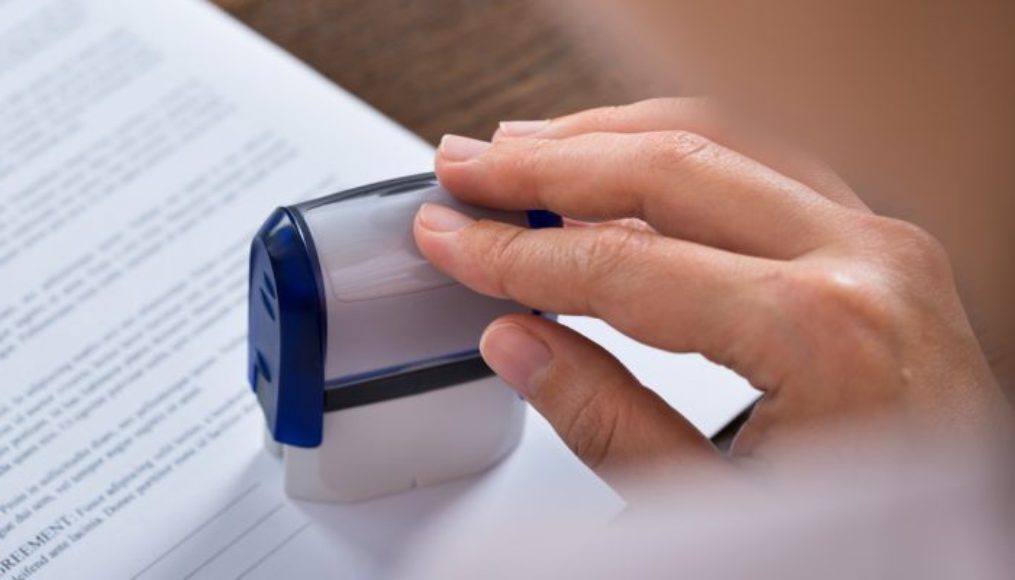Credit privacy numbers (CPNs) are promoted by some credit repair companies as an effective way of eradicating your bad credit history. Rather than using your Social Security number on a credit or loan application, you can supposedly use a CPN number to get approved.
But, is that really the case? Let’s take a look.

What is a credit privacy number (CPN)?
A credit privacy number, or CPN, is a nine-digit number that some companies claim you can use instead of your Social Security number when applying for credit. It’s marketed as a way to create a new credit identity—especially if you have a low credit score or negative marks on your credit report.
These companies often frame CPNs as a legal workaround to “start fresh.” They might say it’s a legitimate way to protect your identity or rebuild your credit. But none of that is true. There’s no legal credit application where you can substitute a CPN for your real Social Security number.
Where do CPN numbers come from?
There’s no government agency that issues CPNs. If someone is offering to sell you one, it’s either fake or stolen—and both options are illegal.
Scammers usually create or obtain CPNs in one of two ways:
- Stolen Social Security numbers: These are often taken from children, senior citizens, or even deceased individuals. Because these identities may not be actively used, they’re less likely to trigger red flags right away.
- Fabricated numbers: Some sellers use software to generate nine-digit numbers that haven’t yet been assigned by the Social Security Administration. These may seem legitimate, but are just made-up numbers being passed off as real.
In both cases, the person buying and using the CPN is putting themselves at serious legal risk.
See also: What Can Someone Do with Your Social Security Number?
Why Using a CPN Is a Crime
Using a CPN on a loan or credit card application is considered fraud. Even if someone else gave you the number, it doesn’t protect you from the consequences. If you knowingly submit a false SSN—or what you think is a legal substitute—you can be charged with identity theft.
It’s not a slap-on-the-wrist offense, either. This kind of fraud is a federal crime. You could face up to 30 years in prison, along with heavy fines. Some states may also pursue additional charges, which can stack on more penalties.
Some people believe that using a CPN is a legal gray area, but that’s just a marketing tactic scammers use. There’s nothing legal about using a number that doesn’t belong to you.
Ready to Clean Up Your Credit Report?
Learn how credit repair professionals can assist you in disputing inaccuracies on your credit report.

Can you get a loan with a CPN?
No. You can’t legally get a loan, credit card, or any type of financing with a credit privacy number. Lenders require your Social Security number to check your credit history and verify your identity. Using anything else is considered fraud.
Even if a lender’s system doesn’t catch the CPN right away, you’re still lying on a credit application. That alone can get your loan denied—and if you’re caught, it could lead to criminal charges. There’s no shortcut. If your credit needs work, the only real option is to fix it the right way.
Why Some People Fall for CPNs
People who buy into the idea of using a CPN are often in a tough spot. They might have been denied for credit, turned down for housing, or rejected for a job because of bad credit. When someone offers a way to hit reset, it can sound like the perfect solution.
The problem is, these offers usually come from scammers who know how to sell false hope. They promise fast results, charge hundreds or even thousands of dollars, and disappear once the damage is done. Most of the time, people don’t realize they’re being scammed until it’s too late.
Better Alternatives to Improve Your Credit
You don’t need a fake number to rebuild your credit. There are proven, legal ways to raise your credit score over time. Here are four smart strategies that actually work:
- On-Time Payments: Payment history makes up the biggest portion of your credit score. Focus on making every payment on time—even if it’s just the minimum. Setting up automatic payments can help you stay on track.
- Lowering Credit Utilization: Try to use less than 30% of your total available credit. If your balances are high, work on paying them down. Even a small drop in your utilization ratio can lead to a noticeable score boost.
- Fixing Credit Report Errors: Check your credit reports for mistakes that could be dragging down your score. You can dispute inaccurate information for free through each of the three major credit bureaus. Removing a single error could make a big difference.
- Credit Counseling or Professional Help: If your credit problems feel too overwhelming to handle alone, a certified credit counselor can help you build a plan. Legitimate credit repair services can also assist with disputes and strategies—but they won’t offer fake shortcuts like CPNs.
How to Avoid Credit Repair Scams
Not all credit repair services are scams, but there are some clear warning signs to watch for. If a company promises instant results, asks for payment upfront, or tells you to lie on credit applications, walk away.
The Credit Repair Organizations Act (CROA) protects consumers from deceptive practices. Under this law, credit repair companies cannot charge you before performing services, and they can’t make false claims about what they can do for your credit.
A legitimate company will be upfront about what’s possible, follow the law, and help you work within the system—not around it. If someone suggests using a CPN or “new identity,” that’s a major red flag.
Is a CPN effective against identity theft?
One of the potential merits of using a CPN is that it’s supposed to offer a new credit identity. However, in reality, this is not a legal option for anyone.
Using your Social Security number often exposes personal details, such as your address and purchase history, increasing its theft risk. Such vulnerabilities can be leveraged by identity thieves, resulting in issues like fraudulent tax returns. In cases where your SSN gets compromised, the Social Security Administration can assist you in acquiring a new one.
Better Ways to Prevent Identity Theft
Even without using a CPN, there are several ways to prevent identity theft. First, you should review your free credit report from all three major credit bureaus every year. That way, you’ll notice if any new accounts have been opened under your name without your authorization.
You can also place a freeze on your credit report, so that creditors can’t pull your financial information until you’ve listed the freeze. This prevents someone from applying for credit under your name, but can’t get approved without a full credit check.
Consider doing this if you’ve been impacted by a recent data breach by a major company or website, such as Target or Anthem.
Can I use my EIN instead of SSN when applying for credit?
An employer identification number (EIN) is primarily used to identify a business for tax and credit purposes, while a Social Security Number (SSN) pertains to an individual’s identity and creditworthiness. When applying for personal credit, lenders typically require an SSN to assess individual credit history.
Conversely, for business credit, lenders may request the EIN to evaluate the business’s creditworthiness. Generally, you cannot use an EIN in place of an SSN for personal credit applications. Attempting to interchange them could lead to application denials or potential legal complications. Always ensure you’re providing the appropriate identification number for the specific credit inquiry.
Credit Card Piggybacking
Some people also attempt to circumvent credit checks by getting added as an authorized user on someone else’s credit card. This is called credit card piggybacking. While this is legal, there are risks associated with this move.
If you rack up credit card debt and fail to make the payments, your friend or relative who is the original cardholder will be saddled with your debt. If neither of you makes the payments, their credit score will suffer just as much as yours does.
There’s also a risk of having your credit history ruined if the primary cardholder doesn’t make their payments. This is because both your credit reports and credit scores become inextricably linked when you share a credit card.
When one of you makes consistent payments each month, both of your credit scores will rise. But if either one of you overspends or lets the account fall into delinquency, you’ll both equally suffer the financial consequences.
Final Thoughts
A credit privacy number might sound like a way to start over, but it’s a scam that can lead to serious legal consequences. There’s no legitimate reason to use a fake or stolen number when applying for credit. Doing so is considered fraud, and it’s a federal crime that could result in prison time.
If you’re dealing with bad credit, the best thing you can do is face it head-on. Focus on proven strategies, stay patient, and ignore anyone who promises a shortcut. Fixing your credit takes work—but it’s possible, and it’s legal.
Ready to Clean Up Your Credit Report?
Learn how credit repair professionals can assist you in disputing inaccuracies on your credit report.

Frequently Asked Questions
Is a CPN effective against identity theft?
No. CPNs are not a legal way to protect your identity. If your Social Security number has been exposed, you can request a new one through the Social Security Administration. But using a CPN instead could lead to criminal charges.
To protect yourself from identity theft, review your credit reports regularly and consider placing a freeze on your credit file—especially after a major data breach.
Can I use my EIN instead of my SSN when applying for credit?
No. You can’t use an EIN to apply for personal credit. EINs are for business purposes only. If you try to use one in place of your SSN, your application could be denied or flagged as suspicious.
Is credit card piggybacking legal?
Yes, credit card piggybacking is legal and can help build credit. But, being added as an authorized user comes with risks. If either person misses payments, both credit scores can take a hit. Only do this with someone you trust to manage the account responsibly.
What happens if I already used a CPN on a credit application?
If you’ve already submitted a credit application using a CPN, you should stop immediately and seek legal advice. Continuing to use it could lead to federal fraud charges. Even if you didn’t know it was illegal at the time, you’re still responsible for the false information on the application.
Can I change my Social Security number to escape bad credit?
No. The Social Security Administration will only issue a new SSN in very limited circumstances, such as ongoing identity theft or abuse. Bad credit alone isn’t a valid reason. If you’re struggling with your credit, the better route is to work on improving it through legal and proven methods.




